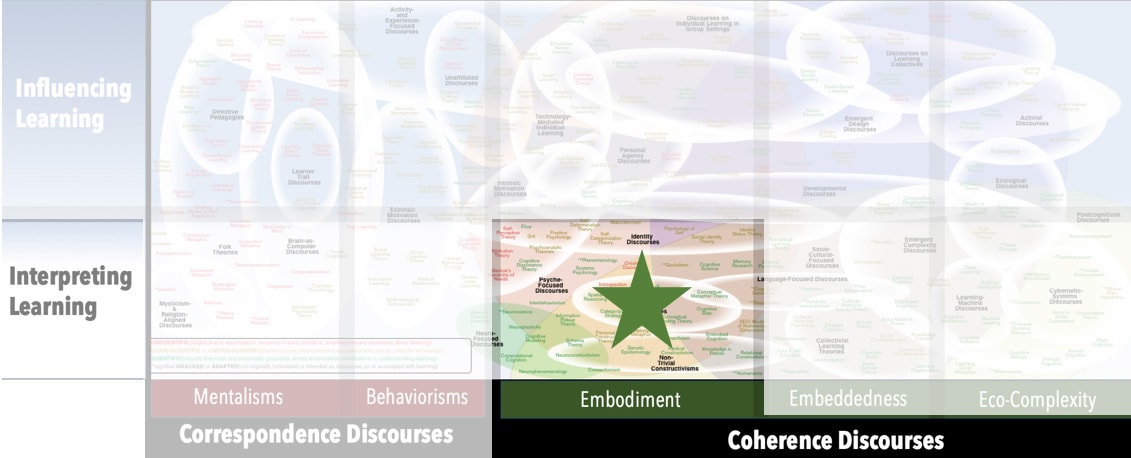AKA
Knowledge-in-Pieces
Focus
Knowledge and learning as complex, temporally multi-scaled phenomenaPrincipal Metaphors
- Knowledge is … complex system (of construals/constructs)
- Knowing is … maintaining coherence
- Learner is … an integrator, interpreter (individual)
- Learning is … transforming (from one complex system to another)
- Teaching is … occasioning, prompting, triggering, listening
Originated
1980sSynopsis
Knowledge in Pieces offers an account of learning that is consistent with individual-focused Radical Constructivism, but that connects to other, more collectivist discourses (e.g., Conceptual Change) to offer increased interpretive reach and explanatory power. Aligning with Complex Systems Research, learning is characterized as transformation from one complex system into another as bits and pieces are integrated. Closely connected, learning is seen to happen across multiple (i.e. short- and long-term) time scales. As well, linking to Cognitive Modeling, there is a strong emphasis on building models of different types of knowledge and concepts. Two subdiscourses of Knowledge in Pieces are especially useful for understanding the theory and its scope:- P-Prims (Phenomenological Primitives) are the bits and pieces of knowing. They comprise smallish, simple, and more-or-less independent noticings and convictions – not all of them defensible – that one carries into and through one’s actions and perceptions.
- Coordination Classes are complex systems that arise are structurally different from, but that arise in the blending of P-Prims. Coordination Classes are, effectively, agile, editable, and sometimes-nested concepts that can be applied across multiple circumstances.
- Knowledge in Structures (Knowledge-in-Structures) – a catch-all category invented to collect discourses on learning that are seen to have a particular contrast to Knowledge in Pieces – namely, those Coherence Discourses that characterize personal understanding in terms of interconnected conceptual frameworks/theories (i.e., in contrast to the suggestion of Knowledge in Pieces that students’ understandings tend to be rooted in loosely structured, context-specific, and often independent pieces of knowledge)
Commentary
Knowledge in Pieces might be productively interpreted as trans-discourse update of Jean’s Piaget’s Genetic Epistemology and related Non-Trivial Constructivisms. With strong commitments to gathering empirical evidence and constant improvement of its own models, the perspective serves as an exemplar.Authors and/or Prominent Influences
Andrea diSessaStatus as a Theory of Learning
Knowledge in Pieces is a theory of learning.Status as a Theory of Teaching
Knowledge in Pieces is not a theory of teaching.Status as a Scientific Theory
Knowledge in Pieces meets all our criteria to be classified as a sound and robust scientific theory.Subdiscourses:
- Coordination Classes
- Knowledge in Structures (Knowledge-in-Structures)
- P-Prims (Phenomenological Primitives)
Map Location

Please cite this article as:
Davis, B., & Francis, K. (2023). “Knowledge in Pieces” in Discourses on Learning in Education. https://learningdiscourses.com.
⇦ Back to Map
⇦ Back to List
